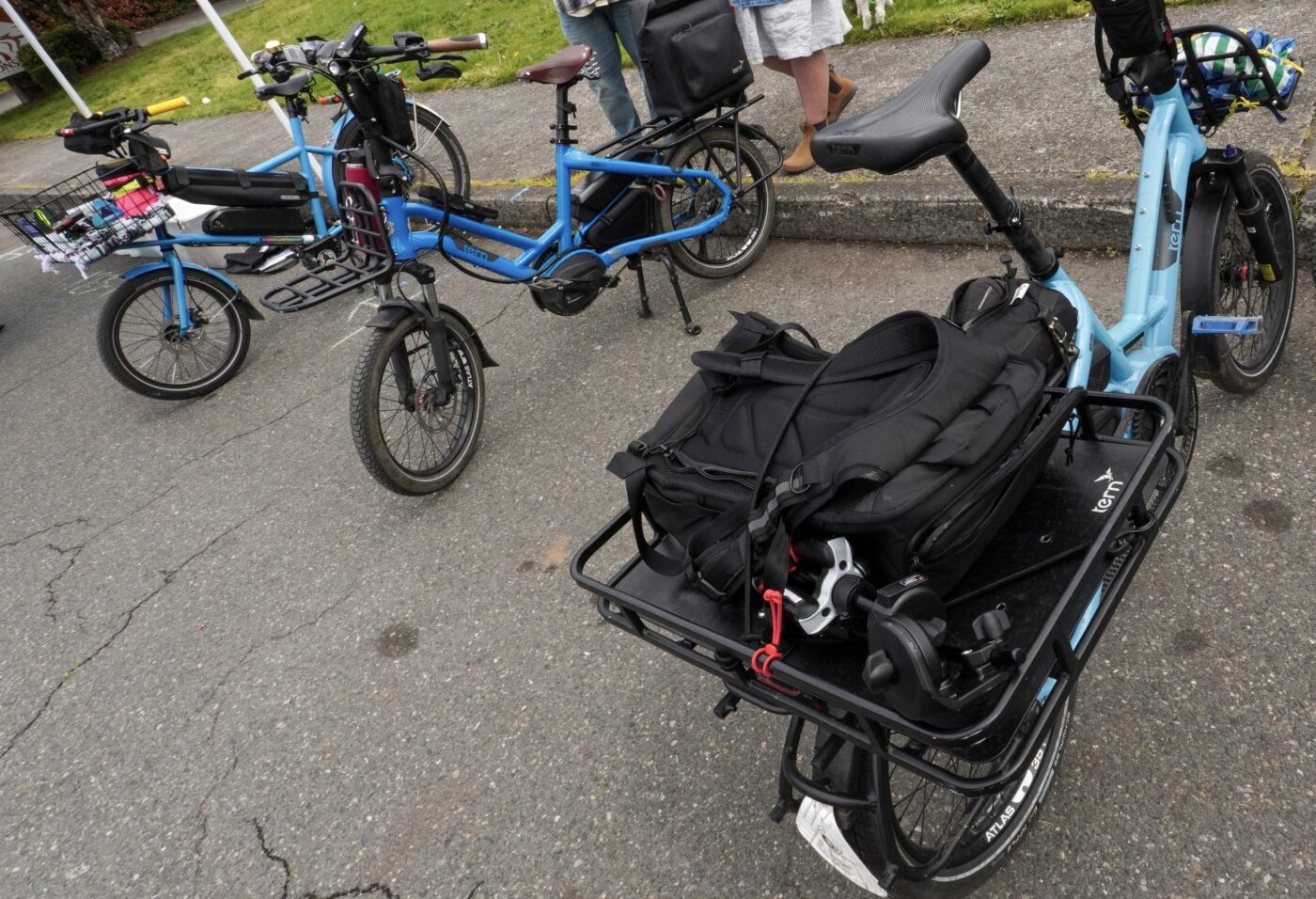
The full draft of the Portland Clean Energy Fund Climate Investment Plan (CIP) is now available and it offers more details on what could be Portland’s first rebate program for electric bicycle purchases.
And if all goes according to plan, the PCEF aims to help fund the purchase of at least 6,000 e-bikes over five years.
PCEF is a relatively new source of funding managed by the Bureau of Planning & Sustainability (BPS) that is derived from a 1% tax on large retailers. Revenue from the tax must be spent on projects and programs that reduce carbon emissions and mitigate the impacts of climate change on the most vulnerable communities. Back in March we shared the news that PCEF would allocate $20 million from its $750 million five-year investment plan on an e-bike rebate program.
The significant amount of interest in this program from bike riders has been tempered by the fact that we didn’t really know too much about how the program would shake out. Now we do.
In the new CIP draft, BPS points out that e-bike rebates are a priority for PCEF in part because of the relatively high cost of e-bikes, their potential to dramatically reduce greenhouse gas emissions, and the fact that, “Women and BIPOC community members have stated through surveys that they feel less vulnerable on e-bikes than on pedal-only bicycles.”
According to the new draft, the rebate will be available to income-qualified households (less than 80% of the area median income) and it can be used only at local bike retailers. In order to qualify as a participating dealer, a shop must have a brick-and-mortar location in Portland and provide both sales and service. Here are some other new details:
- Cargo e-bikes and adaptive electric bikes will receive a higher incentive.
- People receiving rebates will also be able to use a fixed amount of funds for bike safety equipment, locks, and gear.
- The exact rebate amounts will be determined through market research, evaluation of needs, and interaction with other potential programs.
- The rebate program will be implemented in parallel with education and outreach by community-based organizations to PCEF priority populations about the e-bike opportunity, including information about safe riding, route-finding, charging, and storage.
- An early program evaluation will include recommendations for a pilot program for allocating funds for safe e-bike storage and charging needs for existing multifamily properties.
In addition to the $20 million over five years, PCEF will allocate an additional $600,000 to reach workforce development goals. They hope the funding leads to training and retention of 50 new e-bike mechanics in the community.
As part of their outreach for the initial CIP draft, BPS heard concerns from the public about theft of e-bikes and charging needs for people who live in apartments and/or who ride them to work. They also heard some folks worried about the cost of ongoing e-bike maintenance. They might seek to address those concerns in future drafts. Other ideas that came up were grants for community groups to manage fleets of e-bikes at low-income housing complexes.
BPS is still gathering public feedback on the latest draft. You can attend a virtual listening session this Thursday (6/1), comment via their online survey, or email cleanenergyfund@portlandoregon.gov.

